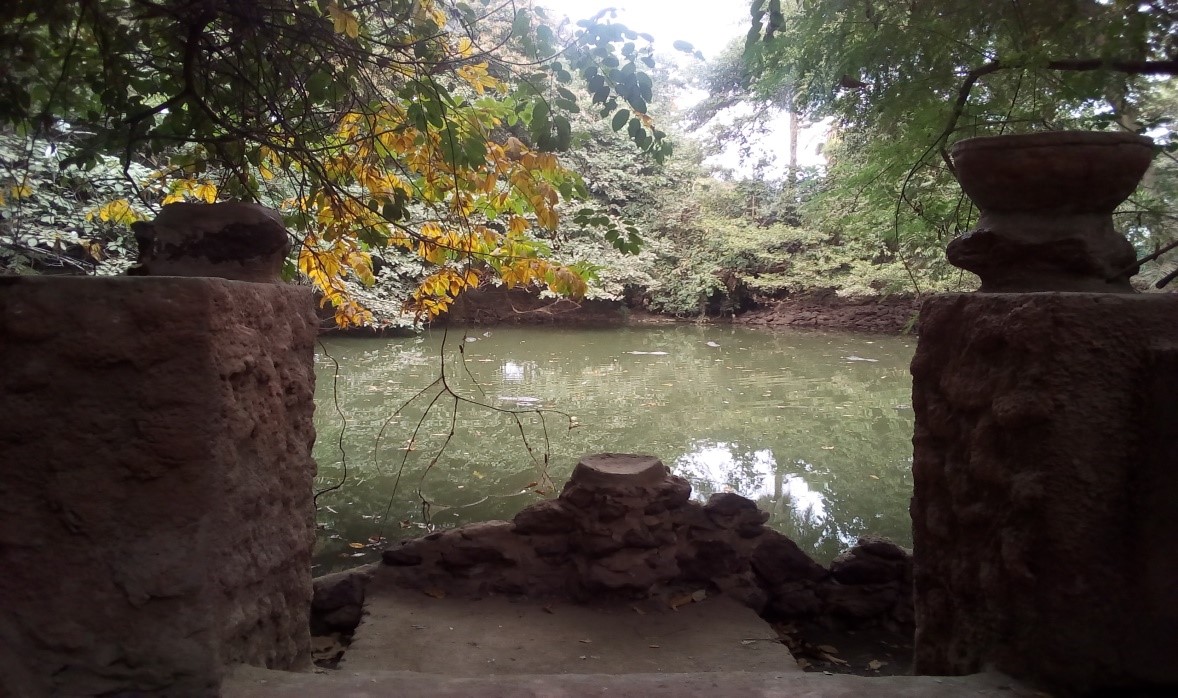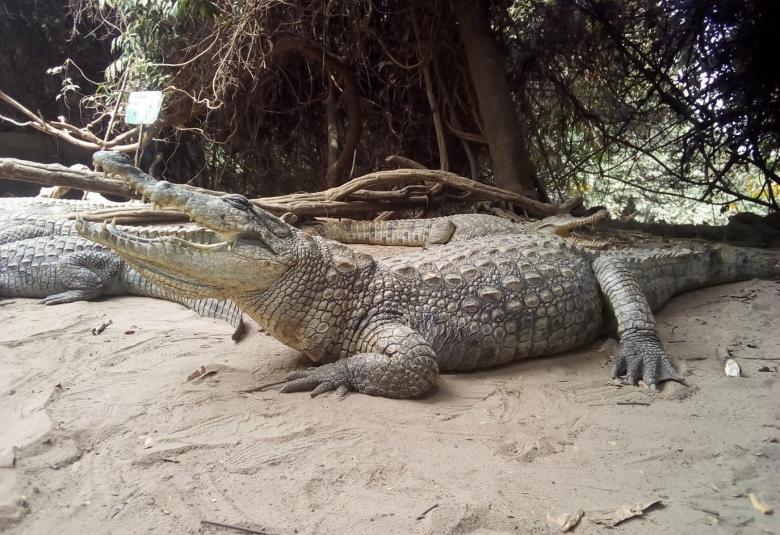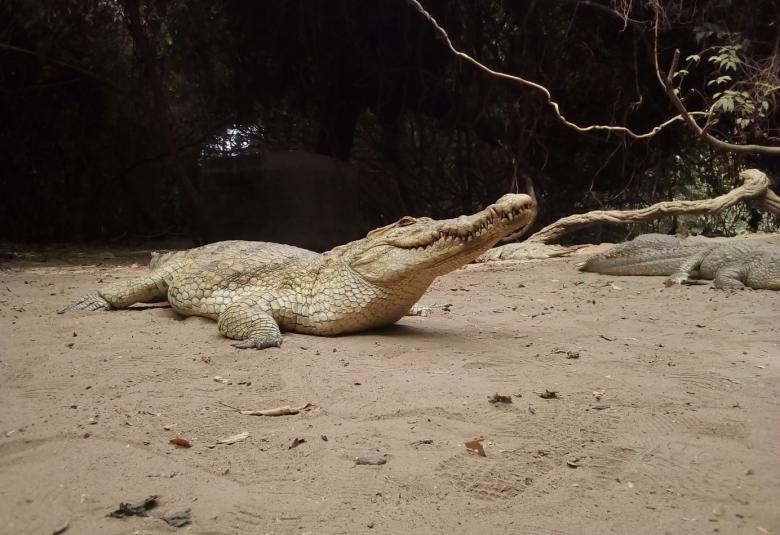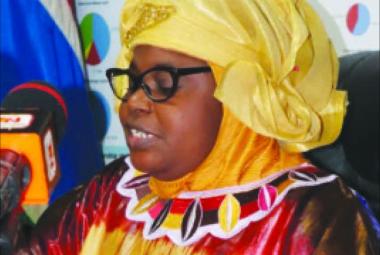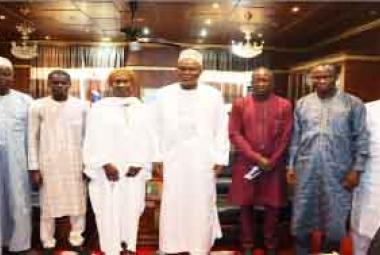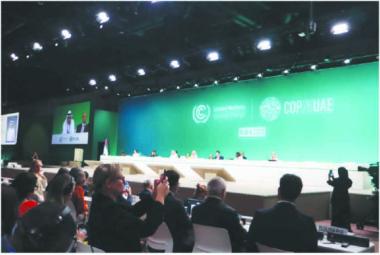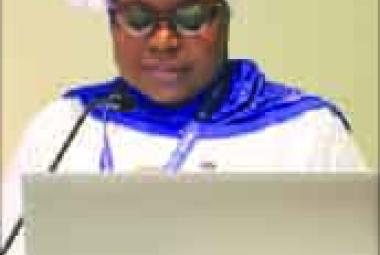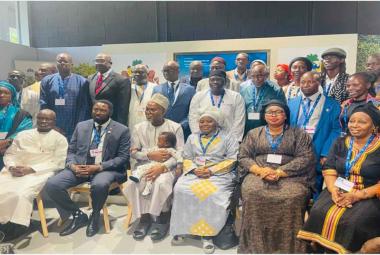By Mahzouba Maya Faal
Kachikally crocodile pool and museum located in Bakau, The Gambia, is a multifaceted attraction for both locals and visiting tourists. The historical site comprises of three different features namely, a museum with five galleries, a nature trail and the crocodile pool. To many civilians, the pool is referred to as sacred because of its unique history.
Seated with eyes fixed on the crocodiles, which are seen bathing under the warm sun with tourists occasionally taking pictures in admiration, some terrified and some brave, Bakary Bojang, a custodian of the pool had a distant look in his eyes as he narrates the history revolving this place.
“Kachically, from the Mandinka word ‘Kachika’ was a well in which the Bojang family used the water for their day to day activities. One day, they were chopping the woods and a woman came to them requesting help that her baby fell into the well. Two boys rushed to her aid. Now, the act of picking the child up from the well is what they called ‘achika/kachika’, which means ‘pick it up/to pick it up.’ This brought about the name Kachikally,” he explained.
He went on to narrate that after the lady’s child was rescued, an elderly woman from the same Bojang family noticed that the woman wasn’t human. As a result, she was questioned, which eventually led to her revelation that she was a ‘spirit’.
“Because of the kindness they showed, the spirit woman prayed for them on the well as a blessing. This is why people come here to pray as they believe their prayers will be answered,” he said.
Kachikally sacred pool is one of the most visited historic and heritage sits in The Gambia. It is privately owned and belongs to the Bojang family, who are identified as one of the founding families of Bakau town. Bakary Bojang is a member of this family. Notwithstanding, the crocodiles are estimated to be about a 100 or less.
“During the rainy season, a crocodile can go far away and wouldn’t come for ages unless and until someone sees them and calls to our attention, only then can we return them back home,” Mr Bojang said.
There are lots of myths surrounding the sacred pool. According to tradition, the water from the pool has healing and therapeutic powers. It is believed to restore fertility in women and protect one from evil.
“In those days, there was nothing like the Abrahamic religions here and barrenness was a huge problem. People believed in the crocodile pool and made ritual prayers by offering sacrifices like cola nuts, milk, anything. In return, they will have a bath in the pool after which, you never know, things work for them just like a dream,” Mr Bojang said, adding “this is why if you look in our society, a lot of children are named Kachikally because their parents have passed through this practice.”
Kachikally is one of three sacred crocodile pools used as sites for fertility rituals in The Gambia. The others are Folonko in Kombo South and Berending in the North Bank Region.
For Katie Kelton, tourist and student from the University of Cambria in England, the crocodiles are ‘just amazing’.
“We are doing some research with the crocodiles in the area specifically the dwarf ones which are more endangered,” she said. She went on “it is so easy to get close to them, take photographs, get hands on experience and feel their scales”.
Bahorey Drammeh, a museum guide, underlined the significance of the Kachically museum which was opened in 2004 by saying, it is here to interpret and complement the sacred pool in order for visitors to know the historical background, culture and tradition of the country. “This adds to its value,” he stated.

